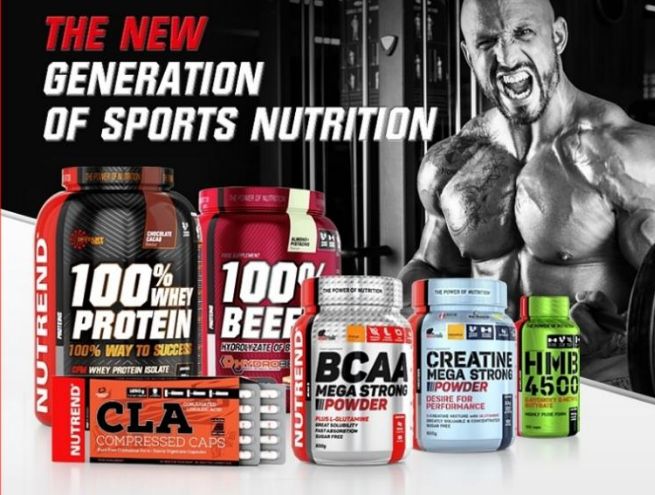-
Make a Call : +86 551 63500087
-
Get A Estimate : sales@gnfchem.com
What Are You Looking For?
What Are You Looking For?
Make a Call : +86 551 63500087
Get A Estimate : sales@gnfchem.com

Essential Muscle Building and Strength Supplement for Fitness - Creatine
Jul 10, 2024As people's living standards continue to improve, the concept of "healthy living" has gradually taken root in people's minds, and to achieve this goal, we need a healthy lifestyle, such as reasonable diet, adequate sleep and regular exercise. Usually, a proper diet is sufficient to meet the body's needs for a variety of nutrients, but sometimes after strenuous exercise, food alone can not fully meet the body's needs, especially fitness professionals and professional athletes need to consume a certain amount of sports supplements to balance the consumption of exercise. Sports supplements are very common in life and there are many kinds of supplements, such as protein powder (protein), creatine, Branched Chain amino-acids (BCAA) and Conjugated Linoleic Acid (CLA), etc. Among them, Creatine is highly favored by the majority of fitness people, because it can rapidly increase muscle strength and accelerate the elimination of fatigue, and timely supplementation of Creatine can effectively improve muscle strength, speed and endurance.
What is creatine
Creatine is a nitrogenous organic acid found naturally in vertebrates and is also known as N-methylguanidinoacetic acid. It was first discovered in skeletal muscle by French scientist Michel Eugène Chevreul in 1832, and it usually exists in solution as a variety of isomers . Despite its amino acid structure, it is not used to synthesize proteins; its real role is to promote and maintain muscle growth and to help synthesize adenosine triphosphate (ATP); in addition, it is effective in delaying muscle fatigue. However, under normal conditions the human body produces only about 1 g of creatine per day and most of it is stored in skeletal muscle tissue, with a very small amount (about 5%) stored in the blood, brain and other tissues to participate in energy metabolism . Because of this, it is clear that autogenous creatine is insufficient for individuals who regularly require high-intensity exercise, and supplementation with exogenous creatine is essential.
Dietary creatine
Although creatine has a number of important physiological functions, the body's own synthesis of endogenous creatine is very limited, so a significant portion of the body's stored creatine comes from food. Since vegetables do not contain creatine, studies have shown that vegans have lower levels of creatine in their muscles than non-vegans. The main sources of creatine in food are fresh meat and fish, such as beef, lamb, chicken, salmon, tuna and tilapia, which are all rich in creatine and can be consumed on a regular basis without relying on creatine supplements to a large extent. It is important to note that the above foods should be cooked at the right temperature and for the right amount of time, otherwise the creatine will be dehydrated molecularly to form creatinine (creatinine) which will eventually be metabolized by the kidneys and become ineffective.
Appropriate use of creatine supplements
According to the above, when the body cannot meet the requirement of creatine through self synthesis and food intake, it is necessary to use creatine supplements for exogenous supplementation. The most common use of creatine supplements in daily life is as a training supplement for fitness professionals. In addition, professional or semi-professional athletes also take a dosage of creatine to support muscle growth and improve muscle mass. It is important to note that creatine is not a doping substance, and although it can improve athletes' performance, it is still a legal nutritional supplement and does not violate international doping rules. Although creatine is vital to the human body, it should be used appropriately to maximize its effectiveness without causing harm. Although there is no reliable evidence of strong side effects from additional creatine, long-term use may increase the metabolic burden on the kidneys and liver; in addition, animal studies in rats have shown that high doses of creatine supplementation can cause diarrhea.
Conclusion
Creatine is a natural nutrient that guarantees sufficient energy, enhances muscle strength and improves athletic performance, and it is widely distributed in human muscles. When natural creatine is not enough, creatine supplements help to provide sufficient energy supply and muscle strength, thus continuously improving and enhancing athletic performance. In addition, creatine is also recognized as a viable treatment for muscular, neurological or neuromuscular disorders, so supplementation with exogenous creatine for clinical use is an important trend in the future development of creatine supplementation products, so let's wait and see if creatine can be developed for new uses in the future.
GNFCHEM is professional Food Additives manufacturer, please follows us and get more products catalogue and price!

Hi! Click one of our members below to chat on